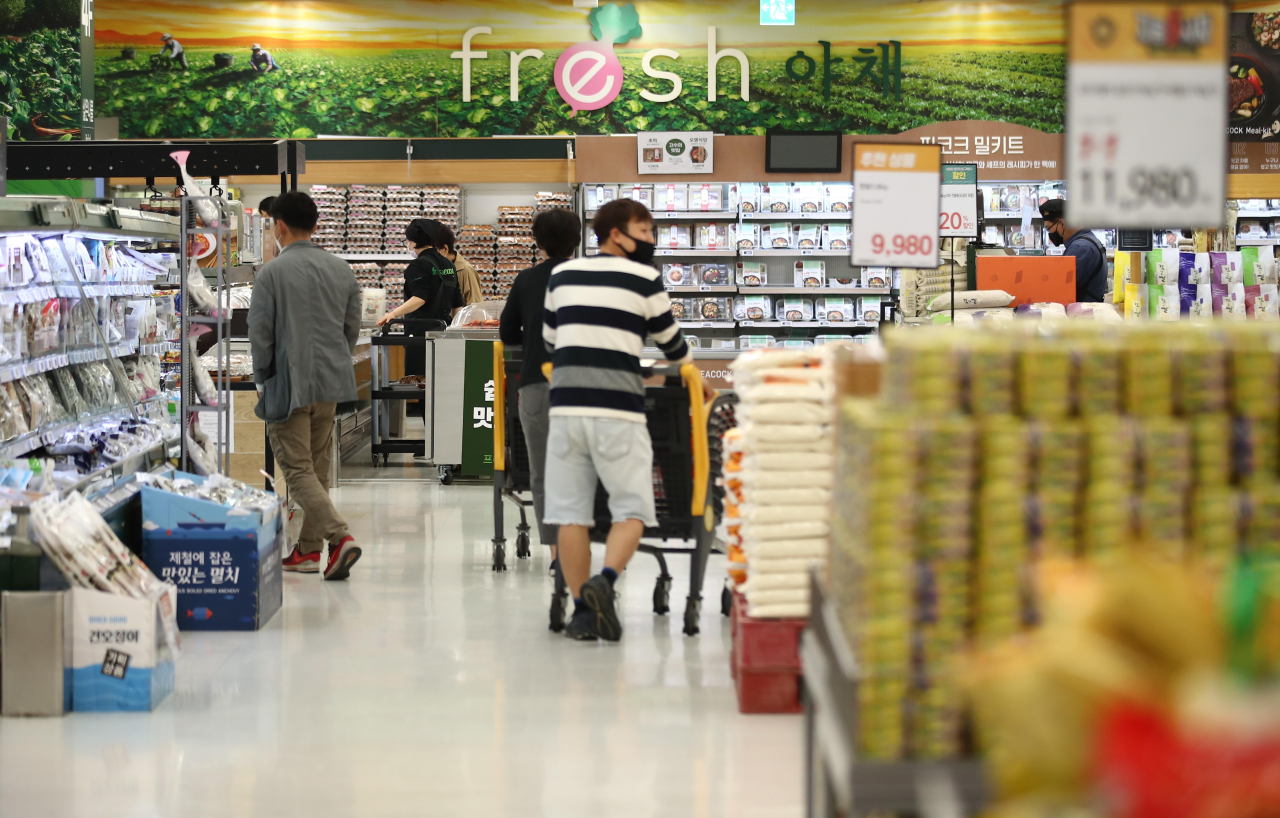 |
(Yonhap) |
South Korea’s consumer prices shed 0.3 percent on-year in May, marking the first annual contraction in eight months, due to the fall in global oil prices and the persisting COVID-19 pandemic, data showed Tuesday.
The consumer price index for May stood at 104.71, down 0.3 percentage point from a year earlier and down 0.2 percentage point from a month earlier, according to data tallied by Statistics Korea.
This was the second time that the annual inflation rate fell below zero since the agency started compiling such data in 1965. The first case was observed in September last year, when the figure slipped 0.4 percent on-year.
“The decline in the May inflation rate was mostly attributed to the plunge in oil prices, along with the prolonged social distancing rules which affected the service sector,” said Ahn Hyung-joon, senior official in charge of economic trend.
Prices of petroleum products plunged 18.7 percent on-year in May, in contrast to that of livestock products which rose 7.2 percent during the same period.
The country’s core inflation -- excluding the price-sensitive agricultural and petroleum products -- climbed 0.5 percent in May from a year earlier.
Asia’s fourth-largest economy is currently not the only one to face a slowing or contracting inflation trend, according to Seoul’s government.
“An inflation slowdown is being observed all around the world as quarantine measures (due to COVID-19) weigh down upon consumer demand and the fall in global oil prices is a blow on supplies,” said Kim Yong-beom, first vice minister of economy and finance, in a macroeconomy-finance policy meeting.
The inflation trend for the remaining part of the year, the vice minister added, will depend on the country’s economic recovery.
“Uncertainties are high as it is currently impossible to predict the direction and pace of economic recovery,” Kim said.
“The government will exert all policy efforts in order to stop the vague fear of deflation from dampening consumption and investment.”
The Korean government is set to unveil its third set of supplementary budget -- estimated to surpass 30 trillion won ($24.5 billion) -- on Wednesday and to submit the bill to the National Assembly on Thursday.
Despite its actions to stimulate the stalled market, speculations mounted that the slowing signals in inflation may push the central bank to further cut its policy rate.
Last week, the Bank of Korea slashed the base interest rate by a quarter percentage point to a fresh record-low of 0.5 percent, reflecting the negative growth anticipated for this year.
By Bae Hyun-jung (
tellme@heraldcorp.com)





![[Exclusive] Hyundai Mobis eyes closer ties with BYD](http://res.heraldm.com/phpwas/restmb_idxmake.php?idx=644&simg=/content/image/2024/11/25/20241125050044_0.jpg)
![[Herald Review] 'Gangnam B-Side' combines social realism with masterful suspense, performance](http://res.heraldm.com/phpwas/restmb_idxmake.php?idx=644&simg=/content/image/2024/11/25/20241125050072_0.jpg)

